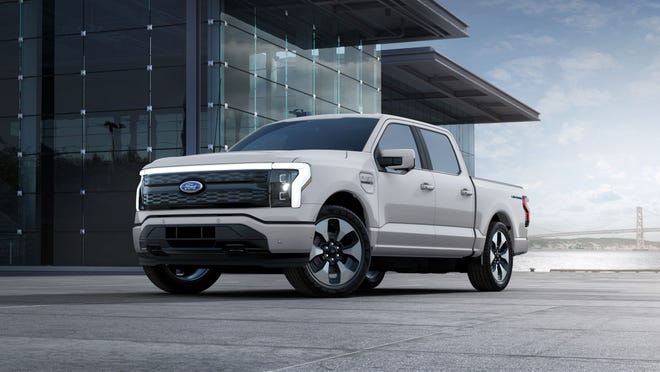Ford plans to cut production of the F-150 Lightning electric pickup in response to lower-than-anticipated EV demand in the U.S.
The Detroit automaker said it would reduce its annual production target for the truck to 50% of its original weekly goal of 3,200. Starting in January, the Dearborn, Michigan factory that makes the F-150 Lightning will only build 1,600 units per week. The news comes just over a week after Ford reported it had sold 4,393 electric pickups, a year-over-year increase of 113% in November, making it the best-selling battery-powered truck in the U.S.
The company’s decision to slash its EV production targets echoes industry-wide disillusionment with the zero-emission segment. Although electric vehicle sales have continued to climb, the rate of adoption among consumers has been slower than many expected. While affordability and economic instability are often cited as key reasons for stagnating EV demand, other challenges, such as limited driving ranges and inadequate charging infrastructure, make electrified models too burdensome for many consumers, keeping the market from expanding. Ford is also facing new competition in the electric pickup segment following Tesla’s release of the long-awaited and controversial Cybertruck.
While the company is no doubt responding to the unfriendly EV landscape, the car market, on the whole, is seeing normalizing trends that have led to lower retail sales for many dealers and franchises. Ford sold 145,559 units in the U.S. over November, a decline of 2.9% from October and 0.5% from the previous year. Detroit OEMs are also facing billions in losses and labor expenses due to the United Auto Workers strike, which secured heavy pay increases for manufacturing employees after a grueling six-week strike that targeted some of the most profitable models produced by the Big Three. Suffice it to say there are many factors at play in Ford’s decision to cut F-150 Lightning production, even if the electric pickup is seeing a surge in popularity.




